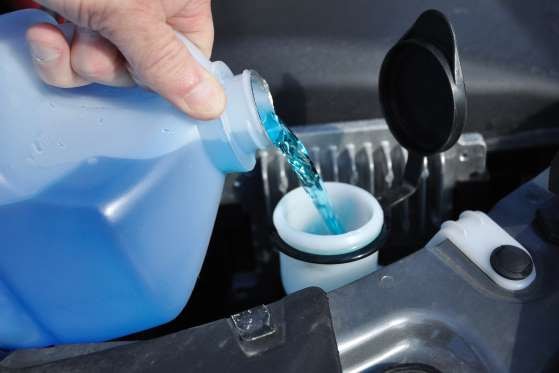How often should car coolant be changed?
Poor quality car engine coolant will reduce cooling efficiency and affect the life of the engine as well as rubber assemblies, wires, etc. under the hood.
A seemingly simple detail that few people pay attention to during vehicle use, but engine coolant has a great influence on the performance and lifespan of many parts of a vehicle.
Poor coolant quality means reduced engine cooling efficiency, causing the engine to overheat or even overheat during operation. This can cause engine seals and parts under the hood to be damaged by heat, causing great damage to the vehicle owner.
|
| Car coolant needs to be checked regularly and replenished promptly - Illustration photo |
Maintaining the correct coolant level and replacing or topping up when necessary is vital to the engine and the longevity of the entire vehicle. Engine coolant is not the purified water used in everyday life, but a specialized liquid whose main ingredient is purified water combined with ethylene glycol, which acts as a heat conductor, and anti-evaporation and anti-corrosion additives.
Manufacturers recommend that users check the engine coolant reservoir regularly to ensure that the water level is within safe limits and that the reservoir is not leaking. After about 40,000 km of operation, the coolant should be replaced and the cycle repeated with the same distance traveled.
All cars have a temperature warning light. When this light comes on, there is definitely a problem with the car's cooling system and the coolant and engine oil reservoirs need to be checked immediately.
When choosing coolant, you need to pay attention to 3 common types: blue, pink (SLLC) and red (LLC) coolant.... The difference is due to the additives mixed with the main solution. With blue and pink water, users do not need to mix but pour directly into the tank, while red water needs to be mixed with filtered water in a 50:50 ratio.
Do not mix coolants together. Add coolant of the same color to the one the engine is using during maintenance.
Filtered water or natural water used in daily life contains many different impurities such as limestone residue, metal... Therefore, when entering the cooling system at many altitudes, it can cause deposits to form in the radiator, reducing heat dissipation efficiency. Bottled mineral water is also not safe because it still contains substances that can cause deposits.

